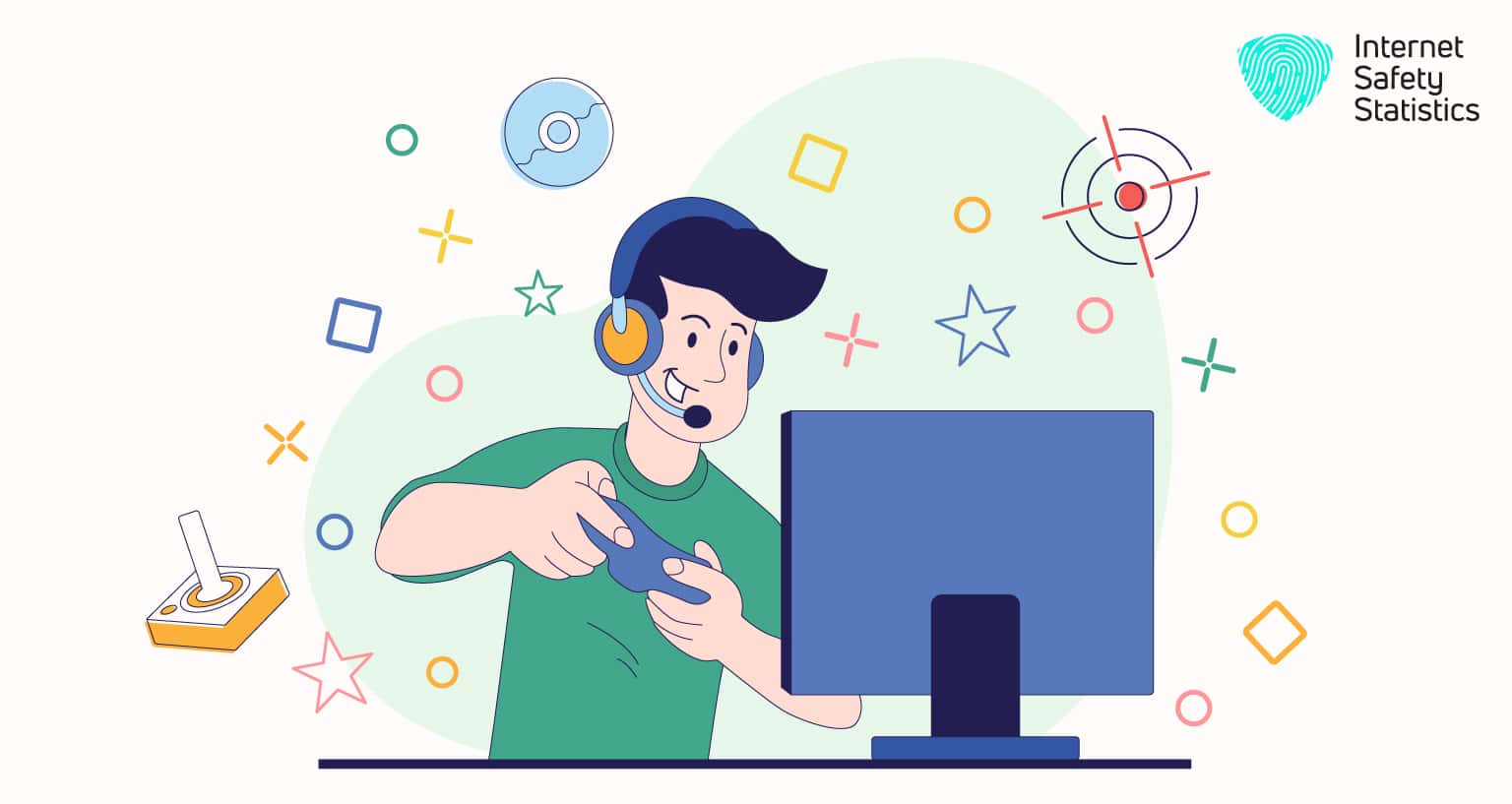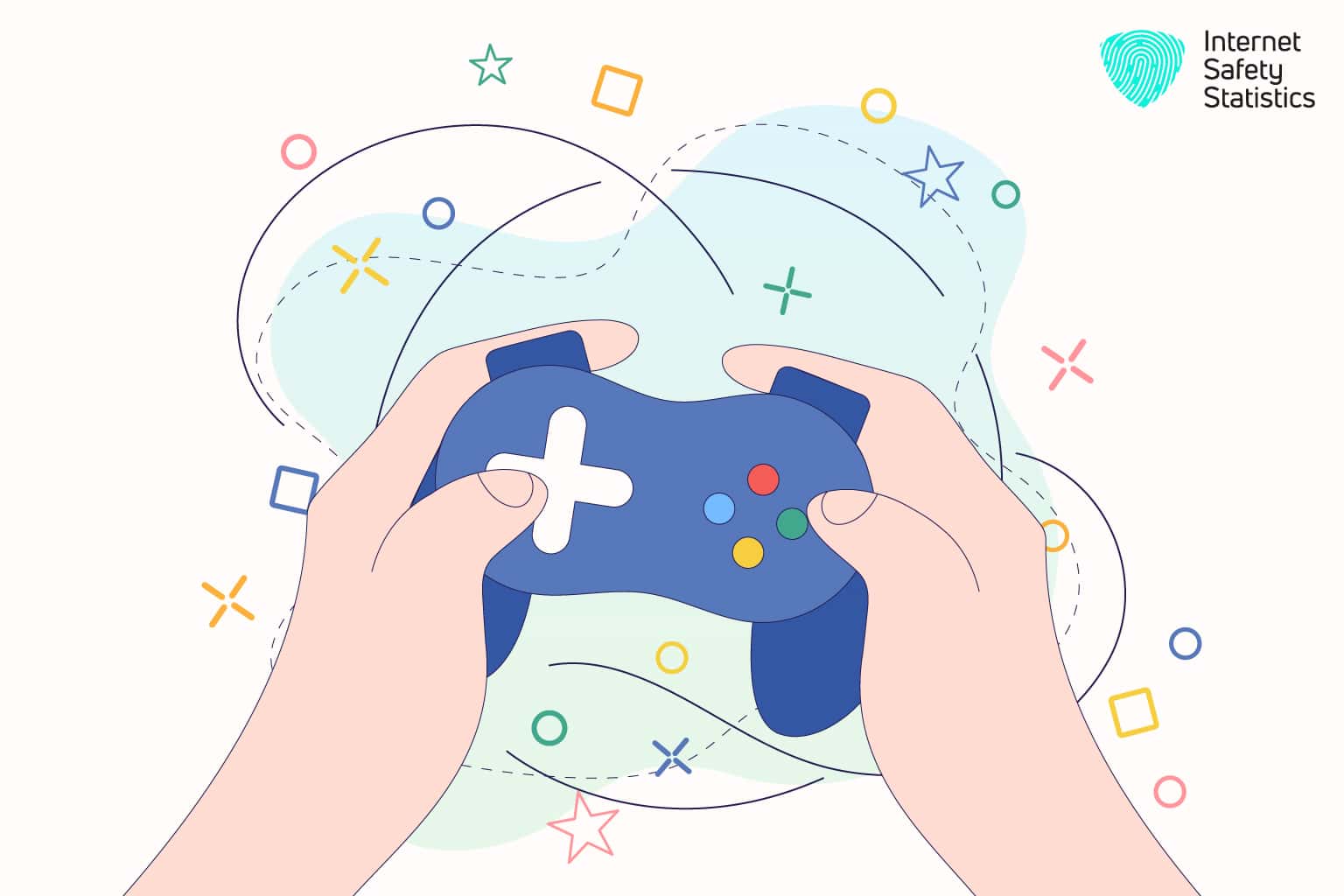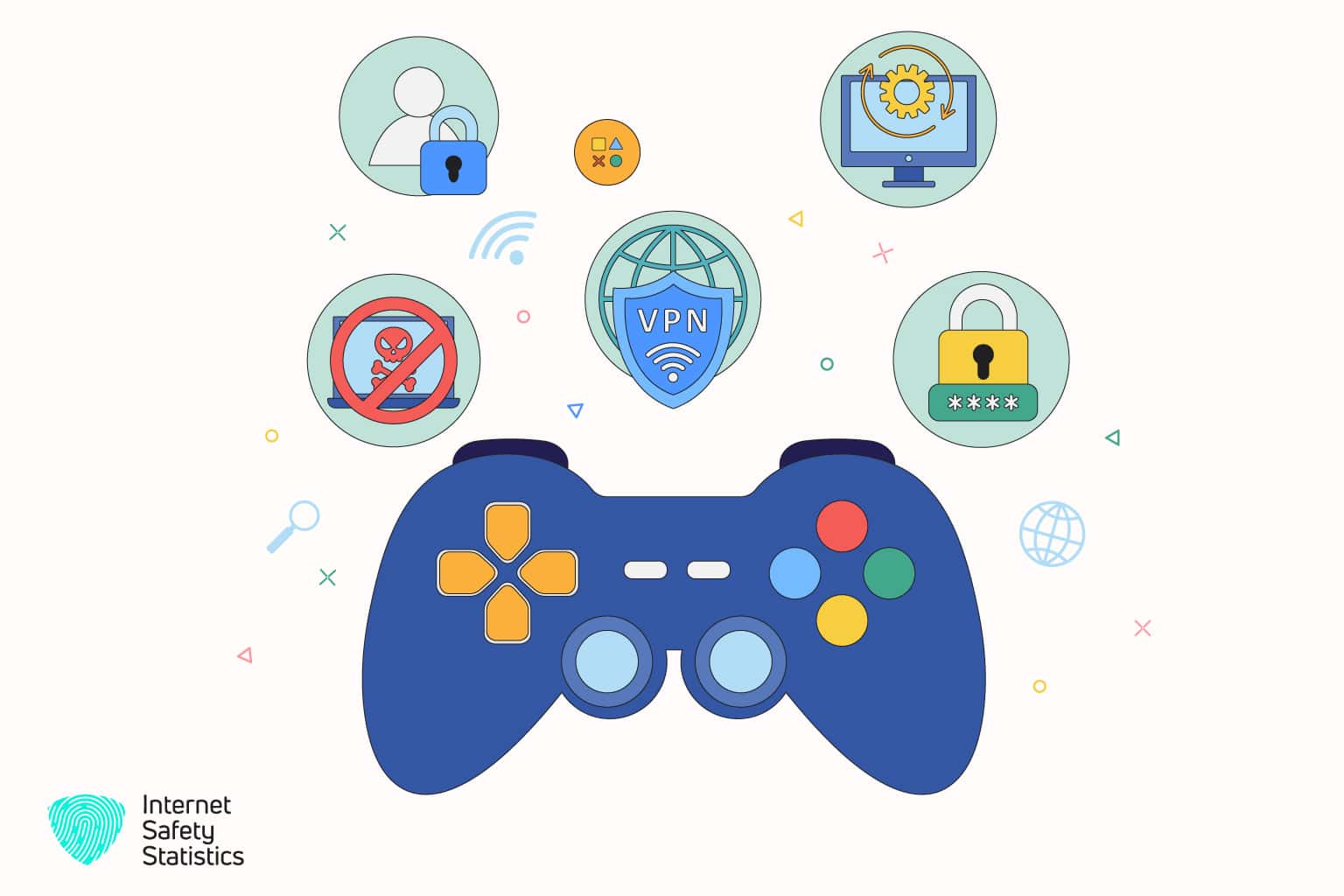
In the digital age, online video games have become an inseparable part of modern entertainment. From battling mythical creatures to competing in virtual soccer matches, gamers across the globe immerse themselves in captivating worlds. However, beneath the surface of this digital wonderland lies a realm of potential dangers and security compromises that players must navigate. This article delves into the often-overlooked risks associated with online gaming, shedding light on the vulnerabilities that can threaten personal information and the essence of an enjoyable gaming experience.
What Are the Most Popular Free Online Video Games?

There are many free video games which interest children, teenagers, and, sometimes, adults as well; here are some of these popular free video games:
- Fortnite: Fortnite is a battle royale game known for its vibrant graphics, building mechanics, and frequent updates.
- Among Us: A social deduction game where players work together on a spaceship while trying to identify the impostors among them.
- Call of Duty (Warzone): A battle royale mode within the Call of Duty franchise featuring fast-paced action and realistic graphics.
- Valorant: Valorant is a tactical first-person shooter developed by Riot Games, combining elements from games like Counter-Strike and Overwatch.
- Animal Crossing (New Horizons): A life simulation game that lets players create and customise their virtual islands and engage in various activities.
- League of Legends: This famous multiplayer online battle arena (MOBA) game developed by Riot Games features competitive matches between champions.
- PlayerUnknown’s Battlegrounds (PUBG): It is one of the pioneers of the battle royale genre, where gamers fight to the end to be the last person or team standing.
- Rocket League: This game is a unique blend of soccer and vehicular mayhem, where players control rocket-powered cars to score goals.
- Hearthstone: A digital collectable card game set in the Warcraft universe, offering strategic card-based gameplay.
- World of Tanks: A team-based multiplayer game centred around armoured warfare and tank combat.
This previous list contains the most popular video games which almost most people worldwide playing them.
What Is the Danger Behind Playing Free Video Games?

Playing free video games can offer many benefits, such as entertainment, social interaction, and cognitive stimulation. However, there are also potential dangers and concerns associated with playing free video games. Here are some of the risks to be aware of:
Microtransactions and In-Game Purchases
Many free video games generate revenue through microtransactions, where players can spend real money to buy in-game items, currency, or cosmetic upgrades; this can lead to overspending, especially among younger players who may need help understanding the value of money.
Addictive Gameplay
Some free games are designed to be highly addictive, encouraging players to spend more time in the game; this can lead to neglect of real-world responsibilities, relationships, and other activities.
Privacy and Data Security
Free games may collect personal information and data from players, which could be used for targeted advertising or sending to third parties. Players should be cautious about sharing sensitive information.
Inappropriate Content
Free games, especially those with online components, can expose players to inappropriate language, behaviour, or content from other players. Parents and guardians should monitor and educate younger players about appropriate online behaviour.
Social Isolation
Excessive gaming, especially in online multiplayer games, can lead to social isolation if players prioritise virtual interactions over real-world relationships.
Health Issues
Prolonged gaming sessions can contribute to physical health issues such as eyestrain, poor posture, and a sedentary lifestyle. Taking breaks, maintaining good ergonomics, and engaging in physical activity are essential.
Gaming Disorder
Excessive gaming that interferes with daily life and responsibilities may indicate gaming disorder, a recognised mental health condition, so keeping a healthy balance between gaming and other activities is better.
Scams and Fraud
Some free games may have hidden fees or scams, and players should be cautious when sharing personal or financial information.
Lack of Regulation
Unlike paid games, free games often need more oversight and regulation, leading to issues with game quality, security, and fairness.
Time Management
Spending too much time playing free games can lead to neglecting other vital aspects of life, such as work, school, and personal relationships.
Practising responsible gaming and establishing healthy boundaries is essential to mitigate these risks. Setting limits on gameplay time, monitoring in-game purchases, and maintaining open communication with friends and family are some strategies to help ensure a positive gaming experience. Additionally, awareness of a game’s content and online interactions is crucial, especially for younger players.
How Do Video Games Affect and Compromise Security?

Video games can affect and compromise security in various ways for players and the broader digital ecosystem. Here are some compromises of video games which can impact safety:
Malware and Viruses
Some malicious actors may disguise malware or viruses as downloadable game files, mods, or cheats. Players who download and install these files may inadvertently compromise the security of their devices and personal information.
Phishing and Social Engineering
Cybercriminals can use social engineering tactics within gaming communities to trick players into exposing sensitive information, like login credentials or personal details, through phishing emails or fake websites.
Account Hacking
If players use weak passwords or reuse passwords across multiple accounts, their gaming accounts can be vulnerable to hacking. Compromised accounts may result in loss of progress, in-game items, or even financial theft if payment information is linked.
Distributed Denial of Service (DDoS) Attacks
Some players may use DDoS attacks to disrupt online gaming servers or other players’ connections, causing lag or temporary outages.
Virtual Currency Scams
In-game currencies or items might be targeted by scams or fraudulent schemes, where players are deceived into trading valuable items for worthless ones or purchasing fake in-game currency.
Ransomware
Some ransomware attacks may target gamers, encrypting game files or even entire gaming libraries until a ransom is paid.
Third-Party Marketplaces and Fraud
Outside official game marketplaces, there are often third-party websites where players can buy, sell, or trade in-game items or accounts. These marketplaces can be rife with fraud, scams, and stolen goods.
Data Breaches
Gaming companies themselves can be targets of data breaches, leading to the exposure of player information, including email addresses, usernames, passwords, and more.
Data Privacy Concerns
Some video games may collect and store personal data, which is vulnerable to breaches or misuse by developers, publishers, or unauthorised parties.
In-Game Spying
In some cases, governments or other entities might attempt to gather information about players through in-game activities or communication.
To mitigate these security risks, players can take the following precautions:
- Use Strong Passwords: Use unique, strong passwords for gaming accounts and enable two-factor authentication when available.
- Be Cautious of Downloads: Only download games, mods, or files from reputable sources and official game platforms.
- Beware of Phishing: Be cautious of unsolicited messages, especially those asking for personal or account information.
- Secure Your Device: Keep your gaming device and software updated with the latest security protectors.
- Use Official Marketplaces: Only use official and reputable marketplaces for purchasing in-game items or currency.
- Monitor Account Activity: Regularly check your account activity for unauthorised access or suspicious transactions.
- Educate Yourself: Stay informed about common gaming-related scams and security threats.
While most players enjoy video games without encountering security issues, remaining vigilant and taking precautions to protect your personal information and gaming experience is essential.
How Can We Prevent This Security Danger?
Preventing security dangers related to video games involves a combination of awareness, responsible practices, and proactive measures. Here are some steps you can take to help prevent security risks while enjoying video games:
- Use Strong and Unique Passwords: Strong passwords for gaming accounts that combine letters, numbers, and symbols are always safer than other options, and of course, avoid using one password for multiple accounts.
- Enable Two-Factor Authentication (2FA): Enable 2FA for your gaming accounts whenever possible; so it can be a form of security by requiring a second form of verification.
- Download from Official Sources: Only download games, mods, patches, and updates from official and reputable sources, such as the official game website or trusted digital distribution platforms like Steam, Epic Games Store, or console app stores.
- Be Wary of Emails and Messages: Be cautious of unsolicited emails, messages, or links related to games. Avoid clicking on suspicious links in response to unexpected requests.
- Secure Your Network: Use a solid and secure Wi-Fi password to protect your network from unauthorised access. Consider a virtual private network (VPN) for additional privacy and security.
- Monitor Account Activity: Regularly review your gaming account activity to detect unauthorised access or suspicious transactions. If you notice anything unusual, take immediate action.
- Practice Responsible Gaming: Set a gaming time to avoid neglecting other responsibilities and activities.
- Avoid Sharing Personal Information: Be cautious about sharing personal information in-game and gaming forums or communities. Limit the amount of personal information you provide.
- Use Parental Controls: If you’re a parent, use parental controls to manage and monitor your child’s gaming activities, limit playtime, and restrict access to inappropriate content.
- Research Third-Party Services: Before using third-party gaming marketplaces or services, research their reputation and reviews to ensure they are legitimate and secure.
- Report Suspicious Activity: If you encounter suspicious behaviour, cheating, or harassment within a game, report it to its official support or moderation channels.
- Be Skeptical of Freebies and Offers: Be cautious when presented with offers of free in-game currency, items, or cheats. Scammers may use these offers to trick players into revealing sensitive information.
By following these guidelines and being proactive about your online security, you can minimise the risks associated with gaming and enjoy a safer and more enjoyable gaming experience. You can also educate yourself and others and stay informed about common gaming-related security threats, scams, and best practices. Share this knowledge with friends and family who also play games.
As players continue to immerse themselves in the captivating landscapes of free online video games, the importance of safeguarding personal information and digital well-being cannot be overstated. By adopting vigilant practices such as fortifying passwords, staying wary of phishing attempts, and keeping software up to date, gamers can fortify their defences against cyber threats. With these safeguards, players can confidently traverse the digital landscapes, basking in the thrill of their virtual endeavours while outwitting the shadows that seek to compromise their security.
